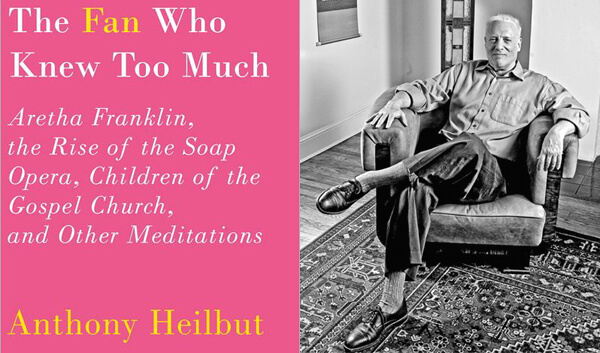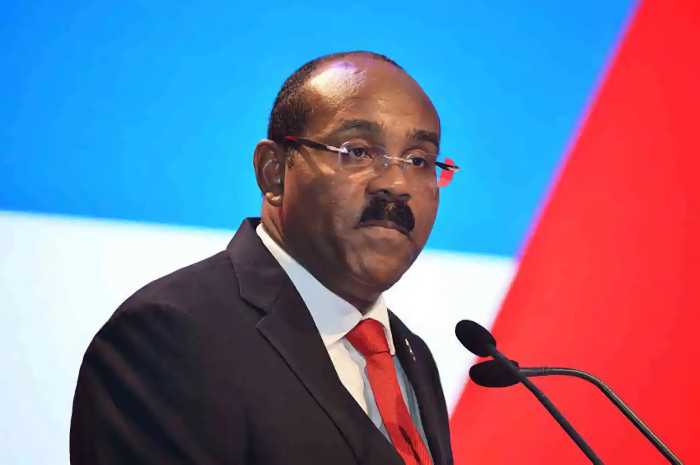Anthony Heilbut is a universally acclaimed critic and scholar of gospel music. | STEPHEN LADNER
No major gospel singer dies without a quote in the New York Times from award-winning author and record producer Anthony Heilbut. Just recently, he told the newspaper that Willa Ward, 91, of the Ward Singers was “the best gospel group in the golden era” –– the subject of his definitive 1971 book on the genre, “The Gospel Sound: Good News and Bad Times.”
Heilbut shared a story about how she died told to him by Ward’s daughter: “She just lay down and said, ‘I’m leaving.’”
Anthony Heilbut isn’t leaving without telling what he knows.
In his new book of essays, “The Fan Who Knew Too Much,” which has been showered with the best reviews of his life, Heilbut is redefining gospel as music that would be nothing without the contributions of gays and lesbians. His thesis is unassailable, making it all the more disconcerting to a swath of increasingly reactionary black pastors.
Gays in gospel is just one of the topics of his wide-ranging new book, which also takes on homosexuality in the white evangelical church, the history and social significance of radio soap operas, Aretha Franklin, the “curse of survival” among blues singers, the male soprano, the nature of fandom, and German émigrés to the US, from Einstein to his beloved parents, to whom the book is dedicated.
The young hot critic John Jeremiah Sullivan wrote, “I finished ‘Fan’ wondering how, without it, I’d ever understood a thing about the 20th century.” The Wall Street Journal called Heilbut’s essay on Aretha “the most incisive and illuminating portrait yet drawn.” Louis Bayard of the Washington Post wrote, “Without breaking a sweat, he swings from the plight of modern academia to the enduring values of the daytime radio serial.” And cultural critic James Wolcott recently tweeted that “Fan” is “my kinda brain food.”
How to define Heilbut? From his couch in his high-ceilinged Central Park West apartment amidst a fine collection of African and pre-Columbian art, he said, “I like to joke about my paradoxes. I am an atheist who loves gospel music, a homosexual with strong heterosexual inclinations, and a leftie who fears the plebs.” Of the latter, he said, “One reason I fear them is because of gospel.”
Heilbut, now 71, has produced more than 50 albums, including those of Kennedy Center honoree and MacArthur genius Marion Williams. His 1973 “Precious Lord: The Gospel Songs of Thomas A. Dorsey” was on the list of the first 50 discs included in the Library of Congress National Registry.
Heilbut is a passionate man of the American left, “very political from an early age.” He was drawn to gospel at 14 by “the music and the politics” around race. When the teenage Heilbut met Malcolm X, Anthony asked him, “Why can’t we be friends?” Malcolm replied, “Not now.”
His living heroes are “Nelson Mandela, Harry Belafonte, Noam Chomsky, and Peter Tatchell,” the great UK gay and human rights activist who, he notes in his book, “was raised in a working class Pentecostal church in Sydney.”
In between “Gospel Sound” and “Fan,” Heilbut wrote his 1983 “Exiled in Paradise: German Refugee Artists and Intellectuals from 1930 to the Present” (a theme to which he returns in a new essay) and “Thomas Mann: Eros and Literature” (1996), which illuminated –– among other things –– Mann’s homosexuality more sharply than any work before or since.
These books may be relatively few, but Heilbut packs more ideas into a paragraph than most writers do in a chapter or even a whole book. He recognizes that “my subjects are not popular ones,” but his success as a record producer pursuing his passion for music allowed him to take the time to write his books, each of which proved definitive.
Heilbut’s parents were refugees from Hitler’s Berlin and he is a son of New York, growing up in Forest Hills in the 1940s and ‘50s bullied and isolated. “The architect of my grief,” he said, “turned out to be a famous right-wing editor” whom he declined to name on the record. “It made me sensitive to the gospel sense of paranoia –– that you couldn’t trust anybody and lived in a world of threats. There’s a line in an Inez Andrews song, ‘If trouble don’t come today, it will surely come tomorrow.’”
Gospel became a passion of his from his first exposure at the Apollo at 14. And when he decided to write a book about it in his late 20s, he had the good fortune of meeting Maya Angelou through a professor of his from Queens College. “She recommended me to [Random House’s] Robert Loomis and though his house rejected it, he forwarded it to Michael Korda, who did publish it at Simon & Schuster.”
Heilbut alluded to the gay nature of gospel in his 1971 book –– which made it, he was told, the most stolen book from the Chicago Public Library. Now he completely blows the door off of gospel’s closet in his lead essay, “The Children and Their Secret Closet,” illuminating the complex reasons why gays and lesbians have given and continue to give so much to churches that almost never affirm their sexuality and more often condemn them.
Gospel singer Brother Walter Stewart, he said, “told me, ‘Baby, don’t you know gay folks like being ’buked and scorned?’” But Heilbut said that the attraction of LGBT black people to a homophobic church is not different from gay Jews going to Orthodox synagogues or many of his generation who went to anti-gay therapists.
“But without gay people,” he said, “religion, art, and music might shrivel up. Just think: no Sistine Chapel, no ‘Ave Maria,’ possibly no ‘Hallelujah Chorus,’ no ‘America the Beautiful,’ no Mormon Tabernacle Choir.”
For all his truth telling, he has gotten no pushback from the black press and, “if anything, endorsement” of his analysis, he said.
But some of his friends in the business fear retribution from the pews or pulpit. One old singer told him, “Tony, they’re going to put a contract out on you.”
Heilbut is spilling the beans now partly because many of his gospel sources are either dead or have given him leave to testify because they are old beyond caring. He is also angry about the response of gospel churches to the AIDS crisis –– “a grievous combination of ignorance and contempt,” he said, for the very people who were the soul of the church. He is weary of modern gospel singers such as Donnie McClurkin who calls himself “delivered from the curse of homosexuali-teh” and furious about pastors such as Chicago’s James T. Meeks –– one of President Barack Obama’s major spiritual advisers –– who has been reported to refer to gay people as “sissies” and “punks” and to have condemned “Hollywood Jews for bringing us ‘Brokeback Mountain.’”
“People have asked me whether Obama coming out for same-sex marriage and Frank Ocean coming out as bisexual and even the publication of my book can change things,” Heilbut said. “I fear not in a church whose establishment has gone so right-wing and is so much a reflection of white Pentecostalism, with its emphasis on the prosperity gospel, combined with its attacks on abortion rights and gay people.”
While angry at church hypocrisy, Heilbut is abiding in his devotion to gospel from the golden age and to the singers he produced and worked with. Singer Paul Simon said, “I know of no one who has the love and depth of knowledge of this extraordinary author.”
THE FAN WHO KNEW TOO MUCH: Aretha Franklin, the Rise of the Soap Opera, Children of the Gospel Church, and Other Meditations | By Anthony Heilbut | Alfred A. Knopf | 354 pages | $30 at anthonyheilbut.com




































